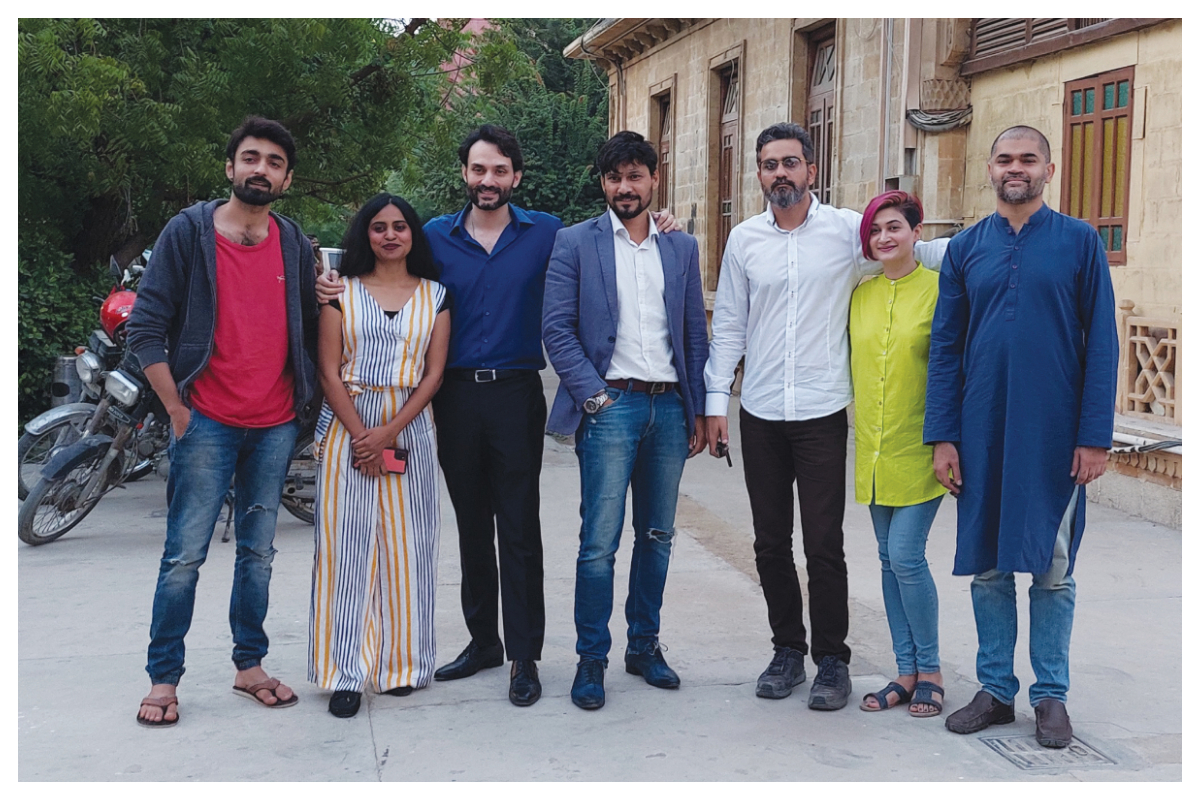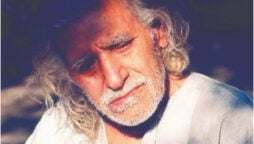
“More state involvement will be beneficial for theatre in Pakistan”: Sunil Shanker
Theatre practitioner, actor and director Sunil Shanker talks to BOLD in an exclusive interview about his new play ‘Reader’
Theatre is touted as the greatest of all art forms and serves as a whetstone of sorts for actors who are sincere to their craft. For celebrated theatre practitioner, actor and director Sunil Shanker, the stage isn’t just another venue where he can display his acting prowess, but also presents an opportunity for a creative challenge.
“In the past, I’ve done plays such as Peter Shaffer’s Equus and Edward Albee’s The Goat, Or Who is Silvia?,” he tells BOLD. “These roles have challenged me as a director and actor as well as [intrigued me] as a human being who has to portray the sentiments of complex characters. For instance, the character of Alan Strang in Equus, who blinds six horses in a stable, fascinated me.”

Shanker’s most recent directorial stint for the stage is an adaptation of Argentine-Chilean author and playwright Ariel Dorfman’s play Reader. The production will be staged at the National Academy of Performing Arts (NAPA) in Karachi until November 27, 2022. Social media posts about the play have been accompanied by warnings that advise viewers under the age of 18 against watching the play. This is primarily because Reader tackles a diverse menu of themes that may be too sensitive for younger audiences. The play explores the plight of a censor who must reckon with the cold fact that a subversive novel he plans to ban mirrors his own life and augurs a tragic fate for his son. The censor embarks on a painstaking quest to find the person who has penned the inflammatory and prescient novel.
Shanker believes that Reader is a veritable “mind-bender” that is both intriguing and complex.
“The events in the play happen in the realm of fantasy as well in real life,” he says. “What the characters think or say comes true. When I read the play, I realised Dorfman has written things that are practically impossible to execute on stage. This is probably why there are very few stage productions of Reader across the world and you’ll rarely chance upon any videos about the play on YouTube.”

Faced with this challenge, Shanker had to make a conscientious effort to understand the play in its entirety and acquaint himself with the playwright’s creative vision. “It is a complex play because it is hinged on a lot of technicalities,” Shanker asserts. “I often think that this play can be compared to the human brain. Our minds have the capacity to think up thoughts, situations and possibilities in split seconds and take them in any direction. This play conceives situations in much the same way.”
Reader derives its creative thrust from subjects that have a universal appeal, such as political repression and censorship. Pakistanis are also no strangers to the concerns and constraints that are aligned closely with these themes. “This is one of the reasons why we decided to do this play,” Shanker admits. “It will definitely resonate with a Pakistani audience.”

When asked if the play will ruffle any feathers, the theatre practitioner says it was difficult to predict the audience’s reaction with certainty. Art is an integral means of encouraging critical thought on issues that matter. “That is also one reason to do the play,” he says. “Nothing happens here. We have to keep ringing the bell and see if someone answers the door.”
The decision to stage a play penned by a foreign playwright of yore might compel many of us to question whether our local contemporary playwrights have fallen short in addressing concerns about repression and censorship. Conventional wisdom would have us believe that plays dealing with these concerns must carry a universal appeal instead of relying on unnecessary political propaganda as a crutch.
“I’ve yet to come across a local play of a political nature that will still be relevant after 100 years,” Shanker argues. “For instance, anything we say about our current political circumstances may not be valid for an audience in the future. Art has to be relevant all the time [in order to be effective]. Reader is timeless in the way it tackles the themes of repression, oppression and suppression.”

Be that as it may, Dorfman’s play had to be tailored to suit the needs of a local audience. “We had to remove certain references that Pakistanis would not understand easily,” Shanker says.
While Dorfman’s original play has been billed as an intense, compulsive and gripping thriller, a tremendous amount of ingenuity is required to flesh out the story and make it palatable for a live audience. Mindful of the constraints involved in staging this production, Shanker claims that he has made use of a whole range of techniques to breathe life into the project. “For the first time in my theatre experience, I have decided to use a revolving stage,” he says. “I’m not at liberty to disclose any more details. You’ll have to watch the play to find out how everything unfolds.”
At the same time, Shanker has made a concerted effort to enlist “theatre-trained actors” for the production as Reader is a difficult play to bring to the stage. Theatre is undoubtedly Shanker’s first love. He made his film debut in Rahm where he played a corrupt governor. He subsequently essayed the role of Sheeda in the TV show Bakhtawar. Even though he has dabbled in film and television as well, the stage evidently exerts its own magnetic pull and lures him back to theatre. At no point does Shanker feel that his training in theatre has made him increasingly selective about the roles he takes on when acting on screen. “There’s always room for theatre-trained actors on screen,” he says. “They are sincere, disciplined, professional and easier to work with.”

Shanker believes his experience of working on television has been rather “enjoyable” and says he plans to return to the small screen soon. At the same time, he believes that theatre — his undeniable safe haven — requires a stronger impetus. “More state involvement will prove to be beneficial for theatre in Pakistan,” he says. Shanker asserts that the government must introduce grants for theatre actors and other personnel involved in stage productions. “Theatre should also be taught in our schools,” he adds. Shanker claims that a training in theatre has the power to groom people’s personalities, especially if it is taught as a subject at elementary schools. -Ends
Catch all the Bold News, Breaking News Event and Latest News Updates on The BOL News
Download The BOL News App to get the Daily News Update & Live News.












 Read the complete story text.
Read the complete story text. Listen to audio of the story.
Listen to audio of the story.